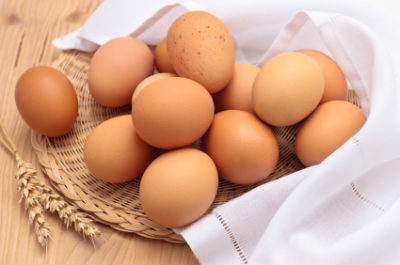
natural immune-boosting foods
As we begin to enter the winter months, we also enter the time of year when we encounter more illness. Many of us should consider adding natural immune-boosting foods to our families diet. This is especially true as school is back in session. Kids are regularly exposed to new illnesses that they then bring home and share. We simultaneously close up our houses to keep the cold (and fresh air) out. Little do we know, we are cooping ourselves up in these spaces as the germs and viruses hang out with us.
Considering this increased exposure, it might be a good idea to examine your diet. Some simple tweaks and additions can help to get your body prepared for the upcoming health challenges and boost your family’s immune systems so that their bodies can fight back effectively when the inevitable exposure to illness occurs.
Here are some natural immune-boosting foods you might want to consider incorporating into your menu plan. Most are easy to work in, whether for breakfast, lunch, snacks, or dinner.
Probiotic Foods
Eating a cup of yogurt a day that contains live and active cultures is a wise investment in your health. The cultures (beneficial probiotic bacteria) in the yogurt help to keep a balance of good bacteria in your gut, allowing it to function at its optimal level. Much of the body’s immune system is located in the gut, so keeping the gut happy should help to maintain good overall health.
If an illness has already gotten you down and you are on antibiotics, it is even more important to include probiotics in your diet. Antibiotics not only kill the bad bacteria that made you sick; they also kill the good bacteria in your body. This leaves you more susceptible to illness later in the season if you do not repopulate your gut with good bacteria. For best results, do not consume your probiotic foods at the same time as you do your antibiotics. Instead, try to stagger them, consuming your probiotics about halfway between your antibiotic doses.
Yogurt is not the only option when it comes to probiotic foods and natural immune-boosting. Other foods you may want to consider trying are milk kefir, water kefir, kimchi, and fermented sauerkraut and veggies. Check out your local health food store for real, fermented foods or try making your own for even more benefits.
Oats
Oats contain beta-glucans, which have an even stronger ability to fight off illness than the often-recommended natural immune-boosting herb, echinacea. In addition to their natural immune-boosting benefits, oats also help to encourage wounds to heal more quickly and potentially enhance the effectiveness of antibiotics. So, a bowl of oatmeal, granola, or O’s might be just the ticket for breakfast this fall and winter! This might even be your justification for eating that oatmeal cookie!
Berries
Berries contain both vitamin C and bioflavonoids, which work together to help the body to rid itself of toxins, boost the immune system, and to maintain healthy collagen levels in the skin. These are all things you want to have going for you in the winter season. Try putting berries in a yogurt smoothie, use them to top your oatmeal or cereal, or add them to salads or desserts.
Tea
True teas from the Camellia sinensis plant species have been shown in studies to contain high levels of antioxidants, which attack free radicals that contribute to disease. White tea contains the most antioxidants, followed by green tea, oolong, and black tea (including pu-erh). All of these teas have at least some benefit to the immune system and many additional benefits to the body as a whole. Three cups a day should be sufficient to receive the benefits. Drink up!
Make Your Own Herbal Medicines In The Comfort Of Your Home
Garlic
Garlic has potent antimicrobial properties that help the body to fight off illness. It aids in killing harmful bacteria in the gut, where much of the immune system resides. In addition, the volatile oils in garlic are beneficial to the lungs as a decongestant.
Garlic is most potent when chopped, allowed to sit a few minutes undisturbed, and eaten raw. Garlic is also beneficial when cooked. If you and your household are fighting illness, put it in everything you can think of to get it into your systems. I like to make hummus with extra garlic, pasta tossed with ten cloves of garlic sauteed in olive oil and with added herbs, and dill pickles with coarsely chopped garlic added.
Garlic too strong for you? Try onions, which are in the same family as garlic. Onions have many of the same properties, and may be a more palatable choice.
Eggs

natural immune-boosting foods
Or more specifically, the egg yolks. Egg yolks contain zinc and selenium, which kick-start the immune system. What better reason to add an egg or two a day? Try them boiled for a snack or scrambled with some garlic, onions, and/or peppers for a light lunch.
If you have high cholesterol and have been told by your doctor to avoid eggs, please take that into consideration. Eggs from free-range or pastured chickens might be a better choice in this case. Free range eggs tend to be lower in cholesterol and higher in beneficial omega-3 fatty acids.
New Survival Seed Bank Lets You Plant A Full Acre Crisis Garden!
Ginger
Ginger has the ability to fight off illness on many fronts. It is an antimicrobial that can be taken internally as well as used topically. Ginger also acts as a natural antibiotic. It kills cold viruses, helps combat fever and chills, gets rid of congestion, and helps with nausea and vomiting, headaches, and indigestion, just to name a few. Ginger is also has the power to help prevent and treat or kill many types of cancer.
Use ginger in your muffin and sweet bread recipes. Fresh ginger can be sliced to make a tea out of it, or add fresh or dried ginger to smoothies and meals. Chew on a piece of dried ginger as an afternoon snack. Stir-fries are delicious with ginger added, but expand your use of ginger and try it in other applications such as soup.
Mushrooms
Recent studies have shown that even the most common button mushrooms have beneficial properties. Perhaps even more than the shiitaki and other exotic mushrooms that have been touted as health foods. In a study done on rats by Tufts University, white button mushrooms were shown to cause the body to develop significantly increased levels of natural killer cells. Cells that are ready to attack whatever invader comes into the body. To get the best effect, it is best to cook the mushrooms rather than eating them raw.
Mushrooms are one of the few natural food sources of vitamin D, a vitamin in which many people are deficient in, and that has been shown in recent studies to be beneficial in preventing disease and illness. Mushrooms are also an excellent source of zinc.
Consider eating mushrooms during the months that you do not get sufficient sun exposure to allow you to make enough vitamin D for itself. Add them to soups, salads, and stir-fries; saute them with onions to add to steak, burgers, or eggs; or include them in your shish kebabs on the grill.
Sweet and Hot Peppers
All peppers contain high levels of beta-carotene. The body transforms beta-carotene into vitamin A, an antioxidant that has the ability to protect the mucus membranes from getting infected. Peppers also contain a healthy dose of vitamin C.
Hot peppers contain capsaicin as an additional asset. Capsaicin has the ability to clear sinuses, encourage movement/excretion of mucus, encourage the release of toxins through sweating, and is a general antimicrobial.
Beef
Beef is another source of zinc, which is very important in the production of white blood cells. Our white blood cells work to fight off bacteria, viruses, and other illness-inducing culprits. Many people are zinc deficient, and it can seriously slow down the production of white blood cells and lessen the body’s ability to fight off illness.
Put beef on the menu and incorporate some of the other foods in this list: saute with peppers, garlic, onions, and mushrooms; add to your shish kebabs; or use ground beef in soups and sauces.
Chicken Soup
No list of natural immune-boosting foods would be complete without chicken soup. It may be the warm broth that is comforting; it may be the noodles reminiscent of what mom used to make; or it may be the vitamins present in the vegetables that cause us to feel better when eating this soup.
Homemade chicken soup has been shown to have anti-inflammatory properties. In addition, in one lab test, chicken soup was shown to help stop the movement of neutrophils. These are white blood cells that feast on bacteria and cellular debris that the body produces when it is affected by a virus such as a cold. Neutrophils have the ability to increase mucus production and may be one of the causes of stuffy noses and coughs. Prevention of this process may be one of the main reasons chicken soup helps us to feel better.
One main component of homemade chicken soup is the homemade broth itself. It is most nutritious when both bones and meat are included in the pot of broth. The marrow from the bones, when cooked into broth, has the ability to help the immune system by carrying oxygen to the cells of the body. More about bone broth in a later article!
Now that you have been given some ideas of basic natural immune-boosting foods, you can sit down and build a meal plan. Make it interesting and make it simple so that you will keep these foods in your diet and maintain a strong and healthy body this season!
Do you have any tips on how you keep your family healthy this time of year? Please share in the comments below.


























